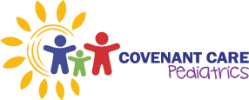We are now fighting an invisible, deadly enemy. We are not used to this, at least not in this country. What can we do to protect ourselves, our families, and our community? There are things we have learned from other, common infections such as the flu, plus we keep learning more about this coronavirus as well. Most of the things we need to do are the same things we do for flu and other viral infections. However, since there is no vaccine for this coronavirus, other measures are even more important.
Handwashing & sanitizing
Handwashing or sanitizing is one of the most effective ways to prevent infection with many germs, including the flu (influenza) virus. Many viruses are spread from surfaces to hands and then to the eyes, nose, or mouth. It is one of the most effective things both children and adults need to do to stay healthy.
In order to be effective, handwashing must be done a certain way. Hands should be washed for at least 20 seconds, covering all surfaces of the hand and fingers.
Hand sanitizers don’t clean hands but do kill germs. They must have at least 60% alcohol and should cover all surfaces of the hands. Hand washing is better than sanitizing but washing is not always available.
Children must be taught how to do it, and young children need supervision and assistance. There are fun ways to teach handwashing to children, like singing the ABC song twice through (to ensure 20 seconds of washing).
Hands should always be clean before eating or touching your eyes, nose, or mouth.
Physical (“social”) distancing
We know that this coronavirus is spread from droplets from person to person, probably more than from surfaces. This means that we need to keep away from other people; right now, the data suggest 6 feet.
This also means being indoors has more risk than being outdoors, and the risks go up dramatically with a greater number of people gathered together, especially if the virus is increasing or high in the community.
There is a much higher risk of anything that generates droplets, such as singing, yelling, talking, cheering, theater, playing wind musical instruments, etc.
If the virus turns out to spread via airborne transmission (in the air rather than larger droplets), physical distancing will become even more important.
Masks/Face Coverings
We know from other viruses that mask wearing provides some protection, at least for others. (“My mask protects you, your mask protects me.”) The data so far on this coronavirus suggests that it does reduce the spread to others and may protect the person wearing the mask as well.
There is some distinction between cloth face coverings and masks. There are also many different kinds of masks. In most situations for the general public, cloth face coverings are recommended.
Other measures
- Don’t go out when sick if possible (protect others).
- Don’t send your child to school or daycare if they are sick. Follow the guidelines.
- Cover your cough or sneeze (protect others).
- Avoid close contact with people who are sick.
Vaccines
Vaccines are highly effective at preventing disease or making a disease less serious. There may someday be one for covid-19. However, during this pandemic getting a flu shot is more important than ever.
Remember the 3 W’s
- Wash your hands
- Watch your distance
- Wear a mask
Notice how many of these guidelines, for coronavirus or flu, are really designed to protect others. Your own protection depends in part on your community, and theirs depends on you. We are all in this together.
Resources
How to Protect Yourself & Others (CDC)
Preventing the spread of the coronavirus (Harvard Health)
General Information
Children’s Healthcare of Atlanta (CHOA)
This information is general information and not specific medical advice. For specific advice, consult your child’s pediatrician or other healthcare provider.
